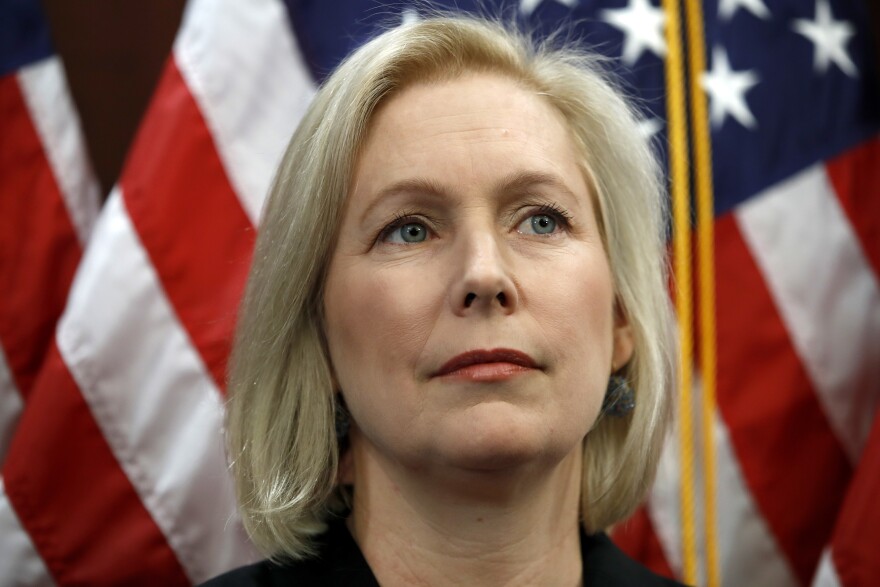As monkeypox continues its spread across New York, the state so far has been allotted 170,000 vaccine doses. U.S. Senator Kirsten Gillibrand (D-NY) said that is not enough.
“We need a lot more vaccines,” Gillibrand said. “And we need them fast. That's why this week, I sent a letter to President Biden urging him to invoke the Defense Production Act. This will help ramp up the production of monkeypox vaccines and give manufacturers the resources they need to make them available to more people at a much more accelerated rate.”
Senators Chris Murphy (D-CT) and Richard Blumenthal (D-CT) have also signed on to the letter.
Dr. Jay Varma, the director of Weill Cornell Medicine's Center of Pandemic Prevention and Response, said the demand for the vaccine in the U.S. severely outweighs the supply.
Without the vaccine, Varma said, Americans will needlessly suffer.
“What we’ve seen now with monkeypox is the same that we’ve seen with other viruses,” Varma said. “If we don’t use all of the tools that we have at our disposal, Americans will become sick needlessly from a disease that we have the tools to prevent.”
New York Governor Kathy Hochul declared a state of emergency last week. The executive order allows an extended group of healthcare workers to administer vaccines.
On Friday, the federal government announced the latest distribution of vaccines to New York.
Of the 11,840 doses allocated to the state, 4,020 will be distributed to Suffolk County, and another 4,000 doses will be allocated to New York City, which has the vast majority of cases in the state. Nassau County will not receive more vaccines at this time. The state health department will also reserve 200 for cases in counties not yet identified.
Eligibility includes the following New Yorkers:
- People with recent exposure to monkeypox within the past 14 days.
- Those at high risk of a recent exposure to monkeypox, including members of the gay, bisexual, transgender, and gender non-conforming community and other communities of men who have sex with men and who have engaged in intimate or skin-to-skin contact with others in the past 14 days areas where monkeypox is spreading.
- People who have had skin-to-skin contact with someone in a social network experiencing monkeypox activity, including men who have sex with men who meet partners online, or social event, such as a bar or party.
Copyright 2022 WSHU. To see more, visit WSHU.







